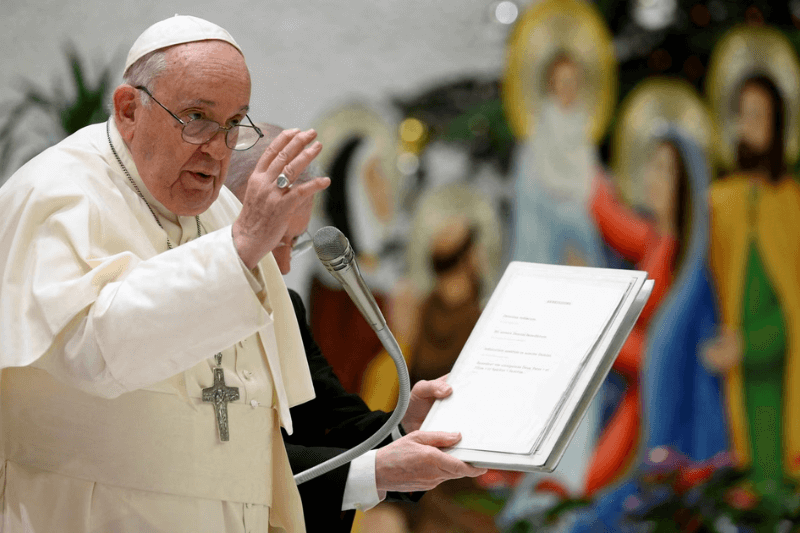
AI and Peace: Pope Francis Calls for Global AI Treaty
A Transformative Call for Ethical AI Governance!
In a historic declaration, Pope Francis has issued a compelling plea for the establishment of a globally binding treaty to regulate the development and utilization of artificial intelligence (AI). This meaningful call to action, articulated in the context of the Roman Catholic Church’s World Day of Peace, marks a significant step towards addressing the ethical concerns and potential risks associated with the rapid advancement of AI technologies.
In his message titled “Artificial Intelligence and Peace,” Pope Francis emphasizes the undeniable global impact of artificial intelligence. Beyond the sovereign responsibilities of individual states in regulating AI internally, the Pope underscores the pivotal role that international organizations can play in formulating multilateral agreements and coordinating the implementation and enforcement of AI regulations.
Urging Global Collaboration
The Pope’s call transcends national boundaries as he urges the global community of nations to collaborate in crafting a binding international treaty. This treaty, as envisioned by Pope Francis, would serve as a comprehensive framework governing the diverse forms and applications of artificial intelligence.
Ethical Concerns: A Cautionary Note
Notably, Pope Francis, known for his critiques of the armaments industry, raises ethical concerns about the potential weaponization of AI. He specifically voices apprehension about research on “Lethal Autonomous Weapon Systems,” emphasizing that the weaponization of artificial intelligence poses grave ethical concerns. The Pontiff categorically states that autonomous weapon systems can never be considered morally responsible subjects.
Keep Reading
The Imperative of Ethical AI
Pope Francis’s advocacy for a global AI treaty is rooted in a deep-seated concern for ethical considerations. The potential misuse of AI in lethal applications prompts a call for ethical guidelines that transcend national interests. The Pope’s message signals a need for collective responsibility to ensure that AI advancements align with principles of justice, peace, and the common good.
Multilateral Agreements and Coordination
The Pope’s emphasis on international organizations playing a decisive role reflects an awareness of the interconnected nature of the AI landscape. The development of a binding treaty requires coordinated efforts on a global scale. Multilateral agreements become imperative to address the evolving challenges posed by AI technologies and their impact on various aspects of society.
Navigating the Path Forward
As discussions around AI governance gain momentum, the Pope’s call offers a moral compass for policymakers, technologists, and global leaders. Crafting a comprehensive international treaty demands a nuanced approach that considers the evolving nature of AI capabilities and their potential societal implications.
A Vision for Ethical AI, Pope Francis Calls for Global AI Treaty!
In conclusion, Pope Francis’s call for a global treaty on artificial intelligence is a transformative moment in the discourse on AI governance. Beyond the technical and policy dimensions, the Pope introduces a moral imperative, emphasizing the ethical dimensions of AI development. As the global community grapples with the challenges and opportunities presented by AI, the call for a binding international treaty resonates as a visionary step towards ensuring that artificial intelligence serves humanity ethically and responsibly.




